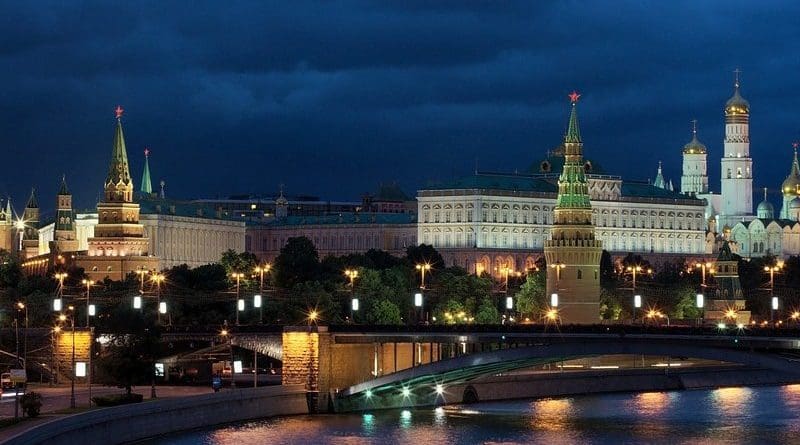New Russian Nationality Policy Document All About National Security – Analysis
By Paul Goble
Russia’s various nationality policy strategy documents in the past have been about social policies, but the new one, prepared by the Federal Agency for Nationality Affairs and slated to be approved by the Presidential Council on Inter-Ethnic Relations is all about national security.
On the one hand, this shift is nothing more than part of a general trend in Russian policy pronouncements under Vladimir Putin in recent years to stress the way in which they contribute to national security, as a means of gaining the Kremlin’s attention and suggesting that those working in a particular area see security questions as paramount.
But on the other, it also reflects an increasing understanding that nationality issues really are at the core of Russian national security not only because they could once again threaten the territorial integrity of the state but also because they create problems that outsiders could exploit or that undermine Russian programs like the military draft.
In Kommersant, journalist Natalya Gorodetskaya says that the document may be changed again before it is promulgated by Vladimir Putin but that, in the words of Aslambek Paskachev, a member of the presidium of the Presidential Council, it is a very different document than its predecessors (kommersant.ru/doc/3779077).
It is far briefer than they were, perhaps in order to avoid raising some of the issues on which there is little agreement such as the relationship between ethnic and non-ethnic Russianness. And it is, Paskachev says, “a document of strategic planning in the sphere of national security.” Aleksandr Brod, another presidium member, confirms that.
Among the challenges the document lists, Gorodetskaya continues, are “the influence of international terrorism and extremism, the dissemination of radical ideas based on national and religious exclusiveness,” and tensions within Russian Federation arising from regional conflicts beyond the borders of the country.
Among the specific threats the strategy paper lists are “an overemphasis on regional interests and separatism, including support from abroad, illegal migration and problems with the system of adaptation of migrants, the formation of closed ethnic enclaves, social and wealth inequality, regional economic differentiation, the results of inter-ethnic conflicts, and the outflow of ethnic Russians from the North Caucasus, Siberia and the Far East.”
One particularly tricky issue for those who prepared the document is the relationship between the concept of ethnic Russians (russkiye) and that of non-ethnic Russians (rossiyane) and the role of the former as “the state-forming” people around whom all the others have been grouped.
The new document specifies that “the Russian state was formed as a unity of peoples, the system forming core of which was historically the Russian people. Present-day Russian society,” it continues, “is unified by a single cultural (civilizational) code based on the preservation and development of Russian [russkaya] culture and language, the historical-cultural legacy of all the peoples of Russia.”
The new document spends a great deal of time defining key terms, because, as sociologist Leokadiya Drobrizheva says, research shows that “people understand in different ways unity and a unified political nation.” Now with these definitions, she suggests, “people will know that a unified nation is not about the suppression of peoples and languages.”
One reason for the delay in the production of this strategy paper was that Vladimir Putin asked Academician Valery Tishkov to prepare a law on a single non-ethnic Russian nation. His efforts sparked opposition from many non-Russians. As a result, the document did not appear as scheduled in August 2017 but may now be worked on again.
An innovation in the new document, Gorodetskaya says, is that it called for “strengthening the non-ethnic Russian nation,” a goal that will require a reduction in the number of conflicts, the elevation of the status of the Russian language, support for numerically small peoples, and increasing inter-regional cooperation.
Vyacheslav Mikhaylov, a former nationalities minister, says it would be wrong to draw sweeping conclusions as the document may be changed before Putin signs it. In any case, he suggests, “discussions will continue.” And while he doesn’t say so, its stress on a non-ethnic Russian nation and on national security will provoke both Russians and non-Russians alike.

